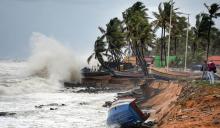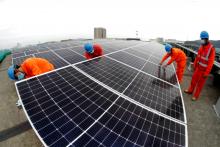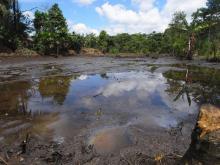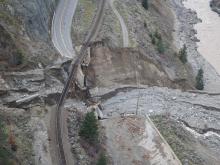Three of humanity's greatest crises are caused by fossil fuel pollution: climate chaos, ocean acidification and the deadly smog choking cities worldwide.
The Trudeau government’s plan to buy 88 new fighter jets and 15 combat vessels will do little to protect Canadians from this country’s most serious threats. And some people are angry enough to take the streets to send this message to Ottawa. Two dozen rallies were held across the country last week to oppose a fighter jet purchase that will exacerbate an existential menace.










